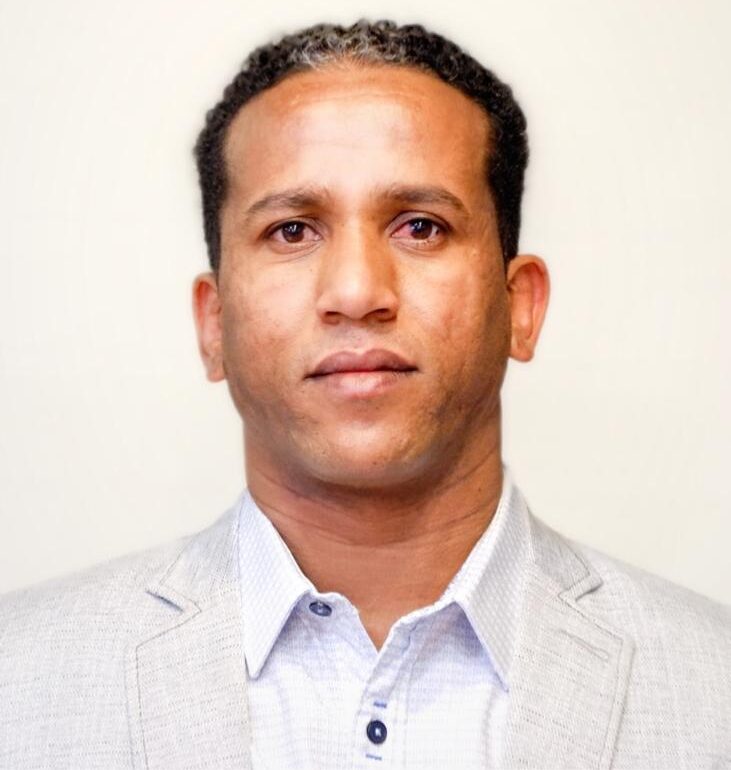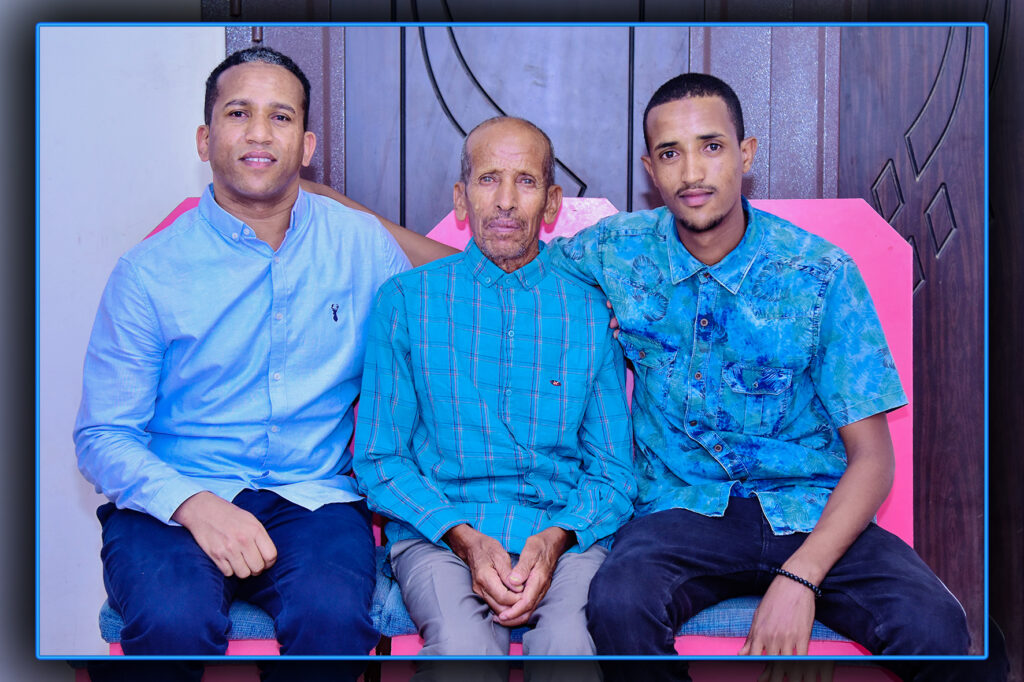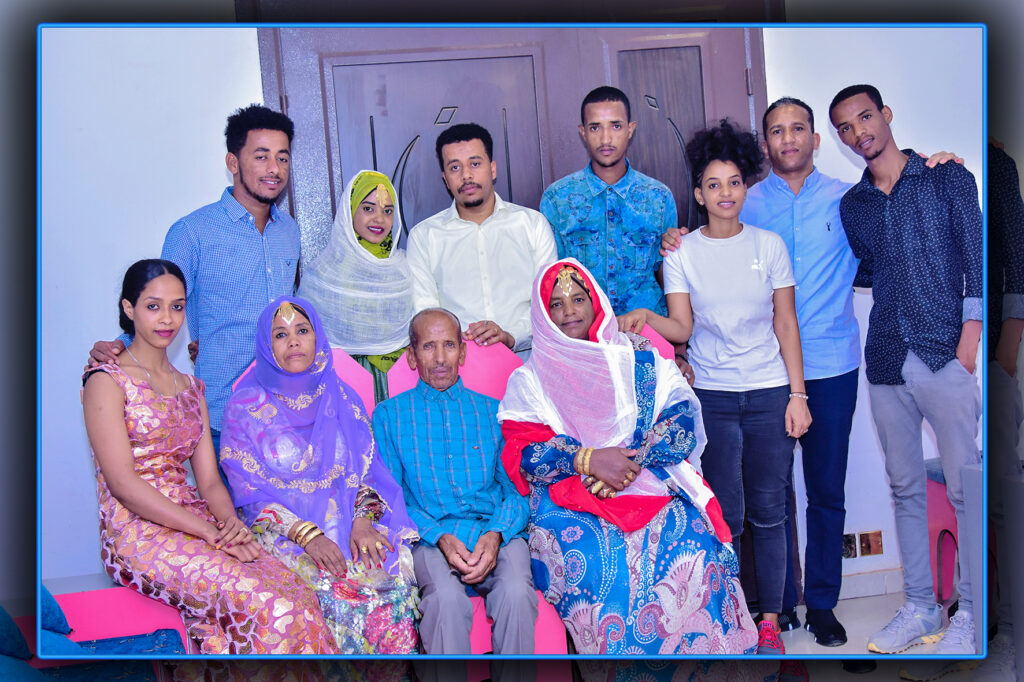Eulogy for my Parents

By Hyab T. Yohannes
Today, I write with great sadness to honour and celebrate the lives of my parents. It is with a heavy heart that I bid them farewell in their absence, but it is also with immense gratitude for the lessons and love they bestowed upon us: their children.
The last time I saw my mum was on the day I left my home village in Eritrea. It was the morning of 22nd March 2011, when I sat with them under a baobab tree near our family farm field. I had to tell them the sad truth that I had to flee Eritrea the next day. As their eldest son, it was unimaginable for them to see me leave and the possibility of never returning, especially before their own passing. We stood in front of each other for a few minutes, tears streaming down our faces. They both understood that my departure was inevitable and did not object, but each of them had one question for me. My mum asked, “Will we see each other again?” I nodded my head in response, assuring her that we would. Then my father followed with his question, “How safe is the journey to Sudan?” I replied, “I will be fine.” I spent the night in Keren, my hometown, preparing everything I needed for the journey. The next morning, I left home and have been unable to return to my home country since then.
I survived arrest and trafficking at the border and made it to Sudan. Even within Sudan, I escaped trafficking multiple times. The last time I escaped from trafficking was in Cairo, where I was kept hostage for ransom or organ trading in the Sinai. I am lucky enough to have been able to escape and still be alive.
Every time I had access to a phone during the perilous journey, I would call my parents and reassure them that I was doing well, even when I was in the hands of traffickers. Unfortunately, my mum passed away without knowing the story of my journey and survival. I never wanted to tell my parents the harrowing stories of the journey, as my siblings were still going through these difficult moments in their lives. None of us, their children, wanted them to know what had happened to us during our survival journeys. They had their own ordeals associated with our irregular flight from Eritrea.
They taught me to hold onto hope even in the darkest of times, and to believe without a second thought that the sun will rise again. They taught me that between threatening violence and perpetual fragility lies hope. Now that their moment of permanent silence has arrived, their memories will forever continue to speak to us in the language of hope. Since hope is the seed of the future, we must nurture the memories of hope amidst overwhelming grief. And now, as their sun sets permanently and their time on this earth ceases, I am determined to carry forward their quest for truth within my own lifetime.
Around March 2021, I called my mother, and she pleaded to see my wedding video. She was not feeling well, and all she wanted before passing away was to hear about my wedding. Despite being in the midst of writing my PhD thesis during the pandemic, I knew I had to fulfil her wish due to her deteriorating health. Therefore, my wife and I arranged our wedding in Glasgow and sent our parents the video. It was a memorable day for my mother and our families in Eritrea. Just a week after the wedding, I successfully defended my thesis and completed my PhD program. I am forever grateful for my supervisors, who were not only amazing mentors but also went above and beyond to act as my parents during my wedding, stepping out of their comfort zones and professional boundaries.
My mother’s health rapidly declined shortly after our wedding, and two months later she was hospitalised in Asmara due to irreversible organ failure. One morning, the doctor asked my uncle, who was by her side, to speak with the next of kin. My uncle called me and introduced me as my mother’s eldest son, urging the doctor to speak to me. The doctor was honest and informed me that my mother would not recover from her condition. He explained that the only course of action was to provide her with pain relief so that she could pass away peacefully. Hearing this, especially knowing that I had never seen my mother again since I had left, was an incredibly sad and overwhelming feeling.
Two days later, my mother was discharged from the hospital with painkillers. Nobody else knew what was about to unfold, but I did. Struggling with sleepless nights, I secretly asked our neighbours in Eritrea to arrange my mother’s funeral. Amidst the depths of grief, I had to suppress my tears and organise a dignified farewell for my mother from a distance. Her last words to me were, “Check on your siblings.” My mother understood the pain her passing would inflict on my younger siblings. My youngest brother was admitted to a hospital in Khartoum for several days, and my sisters, who live in the US, are still grappling with denial. We all long to place flowers on our parents’ graves, but that is not currently possible, at least for now.
Keeping in mind that my father was frail, I left no stone unturned to meet him. Fortunately, my father managed to fly to Sudan. Taking significant safety risks, I also travelled to Sudan to meet my father for the final time. After facing several hours of hurdles at the airport, I finally reunited with my father, young brother, cousins, and nieces. We spent eight days together in an apartment, sharing stories of our parents since I left home. My father, along with my young brother, revealed everything that I did not know before. In return, I partially shared my journey to the UK. It was a week full of whirlwind emotions: tears, grief, hope, and laughter. One moment, it was the best day of my life to meet my father while he was still alive, and another moment, it was the saddest not being able to see my mother as well.


My sisters did not manage to see my father. Neither of my sisters had the right documents to travel to Sudan. One was waiting for her citizenship application to be completed, while the other was waiting for a travel document to enable her to fly to Sudan. Unaware of these immigration bureaucracies, my father was adamant about waiting for my sisters to meet him in Sudan. He waited for nearly five months for them to be able to come. Sadly, their travel documents and visa processes proved to be impossible, and my father had to return home to Eritrea. Travel documents and visa restrictions permanently barred my sisters from meeting their father. While my father passed away reciting their names, my sisters are afflicted with trauma of incomparable damage.
My mother, who left us on 16th November 2021 at 11:23 PM (GMT), and my father, who followed her on 25th August 2023 at 7:05 PM (BST), were both born into farming families. They knew the value of hard work, resilience, and the profound connection between humans and nature. They came from a lineage of those who nurtured the land, tending to crops and raising countless herds over generations. As a child, I roamed the fields alongside hundreds of goats, dozens of cattle, donkeys, two dogs, and a camel. Our home was filled with the joyful presence of all these animals, all of whom were cherished as part of our family.
But beyond this earthly bond with the natural and animal worlds, my parents instilled in me the importance of personal growth and intellectual curiosity. At the tender age of six, they made the brave decision to send me to school, nurturing a desire within me to become a thoughtful and inquisitive person. They believed in the power of knowledge and encouraged me to think with confidence and courage, even in the face of the adversities we faced as a family.
Having lived through the turmoil of successive colonisers, my parents carried deep wounds and a sense of injustice within them. My father bore the physical scars of the torture he endured under the British Military Administration and the Ethiopian colonisation. These personal traumas were further compounded by the loss of countless relatives and loved ones. Yet, despite their pain, my parents urged me to embrace their story while crafting my own.
Though they may not have been formally educated themselves, my parents taught me more than any book or person ever could. They instilled in me the importance of living a life steeped in honesty, dignity, and integrity. They taught me to hold onto hope even in the darkest of times, and to believe without a second thought that the sun will rise again. They taught me that between threatening violence and perpetual fragility lies hope. Now that their moment of permanent silence has arrived, their memories will forever continue to speak to us in the language of hope. Since hope is the seed of the future, we must nurture the memories of hope amidst overwhelming grief. And now, as their sun sets permanently and their time on this earth ceases, I am determined to carry forward their quest for truth within my own lifetime. I will honour their memory by sharing their story, the story they imprinted upon my heart from the earliest moments of my existence.
In exile, we live between multiple homes and places, carrying hope and sowing seeds of our own lives. As the children, we feel alone after the passing of both our parents. Alone is when we listen to ourselves, think with ourselves, and be with ourselves and those around us and with us. Alone is where we succumb to and welcome the orphanage within us. It is a peculiar human reality that we must accept.
Farewell, dear parents, and thank you for the immeasurable gift of your presence in our lives.
With love.

My thoughts and prayers are with you and your siblings Hyab. May your parents’ souls rest in peace. The complexity and harshness of exile and losing loved ones are difficult to accept but as you eloquently stated it we live with the hope and values our parents instilled in us.